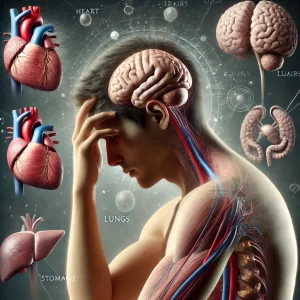Introduction
Hormones are chemical messengers that regulate nearly every function in the body—from metabolism and mood to sleep and reproductive health. When hormones become imbalanced, they can cause a variety of physical and emotional symptoms, including fatigue, weight gain, mood swings, and menstrual irregularities. Fortunately, many hormone imbalances can be improved through natural methods. This guide explores lifestyle, dietary, and holistic approaches to help balance your hormones naturally.

Signs of Hormonal Imbalance
- Irregular menstrual cycles
- Mood swings or anxiety
- Weight gain or difficulty losing weight
- Low energy or chronic fatigue
- Sleep disturbances
- Skin issues like acne or dryness
- Hair thinning or loss
Key Strategies to Balance Hormones Naturally
1. Eat a Nutrient-Rich, Anti-Inflammatory Diet
- Focus on Whole Foods: Fresh fruits, vegetables, whole grains, nuts, and seeds.
- Healthy Fats: Avocados, olive oil, and fatty fish support hormone production.
- Reduce Sugar and Refined Carbs: These contribute to insulin resistance and inflammation.
- Fiber-Rich Foods: Help with estrogen detoxification and digestive health.
2. Manage Stress Effectively
- Chronic Stress Elevates Cortisol: This can suppress other hormones like progesterone and thyroid hormones.
- Practice Mindfulness: Yoga, meditation, journaling, and deep breathing.
- Get Outdoors: Time in nature helps lower cortisol and improve mood.
3. Prioritize Quality Sleep
- Establish a Routine: Aim for 7–9 hours of restful sleep each night.
- Create a Sleep-Friendly Environment: Keep your room cool, dark, and free from electronics.
- Support Melatonin Production: Avoid blue light before bed and get sunlight exposure during the day.
4. Exercise Regularly but Don’t Overdo It
- Moderate Exercise: Walking, strength training, cycling, or yoga.
- Avoid Overtraining: Excessive high-intensity exercise can increase stress hormones.
- Movement Supports Insulin Sensitivity: Which is key for hormonal balance.
5. Support Gut Health
- Probiotic-Rich Foods: Yogurt, kefir, sauerkraut, and kombucha.
- Prebiotics: Onions, garlic, bananas, and oats help nourish good gut bacteria.
- Reduce Processed Foods: Which can damage the gut lining and trigger inflammation.
6. Limit Toxin Exposure
- Choose Clean Personal Care Products: Avoid parabens and phthalates.
- Use Glass or Stainless Steel: Instead of plastic containers for food and drink.
- Filter Your Water: To reduce chemical contaminants.
7. Maintain a Healthy Weight
- Excess body fat, especially around the abdomen, can disrupt hormone function.
- Losing even a small amount of weight can improve insulin and estrogen balance.
8. Consider Herbal Support
- Maca Root: May support energy, libido, and hormone regulation.
- Ashwagandha: Helps reduce cortisol and balance thyroid hormones.
- Chasteberry (Vitex): Commonly used for PMS and menstrual irregularities.
- Always consult a healthcare professional before starting any supplements.
When to See a Healthcare Professional
While natural approaches can make a significant difference, some hormonal imbalances require medical evaluation and treatment. Consult your doctor if symptoms are severe or persistent, or if you’re considering hormone therapy.

Conclusion
Balancing hormones naturally is about creating harmony in your body through intentional lifestyle changes. By eating clean, managing stress, sleeping well, and minimizing toxin exposure, you can support your body’s natural ability to regulate hormones. With consistency and care, these strategies can lead to improved energy, mood, metabolism, and overall health.





